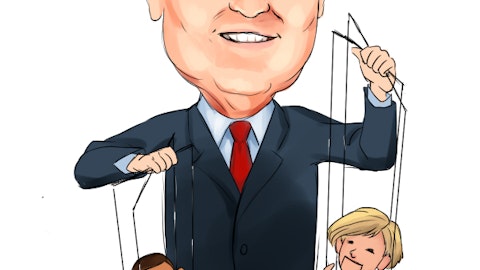Laurence Parisot, the president of MEDEF (the largest union of employers in France), blamed American media for destabilizing the banks in euro zone. Her speech was a response to Alan Greenspan’s accusation that “The euro is breaking down and the US economy is suffering because of Europe’s debt crisis” at the Innovation Nation Forum in Washington DC on Tuesday. In so speaking, Laurence Parisot returned the blame back to the U.S.A.
She told French newspaper Figaro that the difficulties of euro zone were orchestrated in the USA in order to destabilize Europe. She continued that when American publications largely read by investors and financial analysts make false and dramatic headlines the questions should be asked. She denounced an orchestration made on the other side of the Atlantic for the difficulties which Europe is currently experiencing. She added that even though the rumours over the French banks were unfounded the American press immediately made news of it. “Even one of the US media declared the end of euro, continuing that “we went from attacks on Spain to Italy, then France until the rumours of degradation of Germany last week”.
In addition to all these she said that there has been psychological warfare to destabilize the euro zone. The rumours have been created and the market has overreacted to these rumours. “We must not be naïve and fall for the auto disqualification: if Europe is attacked not because it is weak but it is strong”.
She also said that she is in favour of golden rule that would include a balanced budget in the constitution.
Recapitalization of European Banks to Resolve European Debt Crisis:
The president of MEDEF, Lauren Parisot, also criticized the proposals of the president of IMF, Christine Lagarde, who had urged European states to recapitalize the banks. Madame Lagarde said the following at the Jackson Hole conference:
European banks need urgent recapitalization. They must be strong enough to withstand the risks of sovereigns and weak growth. This is key to cutting the chains of contagion. If it is not addressed, we could easily see the further spread of economic weakness to core countries, or even a debilitating liquidity crisis. The most efficient solution would be mandatory substantial recapitalization—seeking private resources first, but using public funds if necessary. One option would be to mobilize EFSF or other European-wide funding to recapitalize banks directly, which would avoid placing even greater burdens on vulnerable sovereigns.
Laurence Parisot, the boss of the French bosses, told Europe1 that “The statement of IMF’s president is completely incomprehensible. European banks are solid and sound and for the French banks, keeping in mind that we have banks among the strongest in the world. Madame Parisot finds it particularly a bad idea to inject public funds into banks that are well. “I do not know what circumstances led Madame Lagarde to say this, but in any case what she said does not make sense,” Parisot said.
Madame Parisot again pointed the blame at the U.S., saying that:
“French banks are well capitalized, they are very strong. We must never forget that the crisis of 2008 comes from U.S. banks, certainly not European banks“

